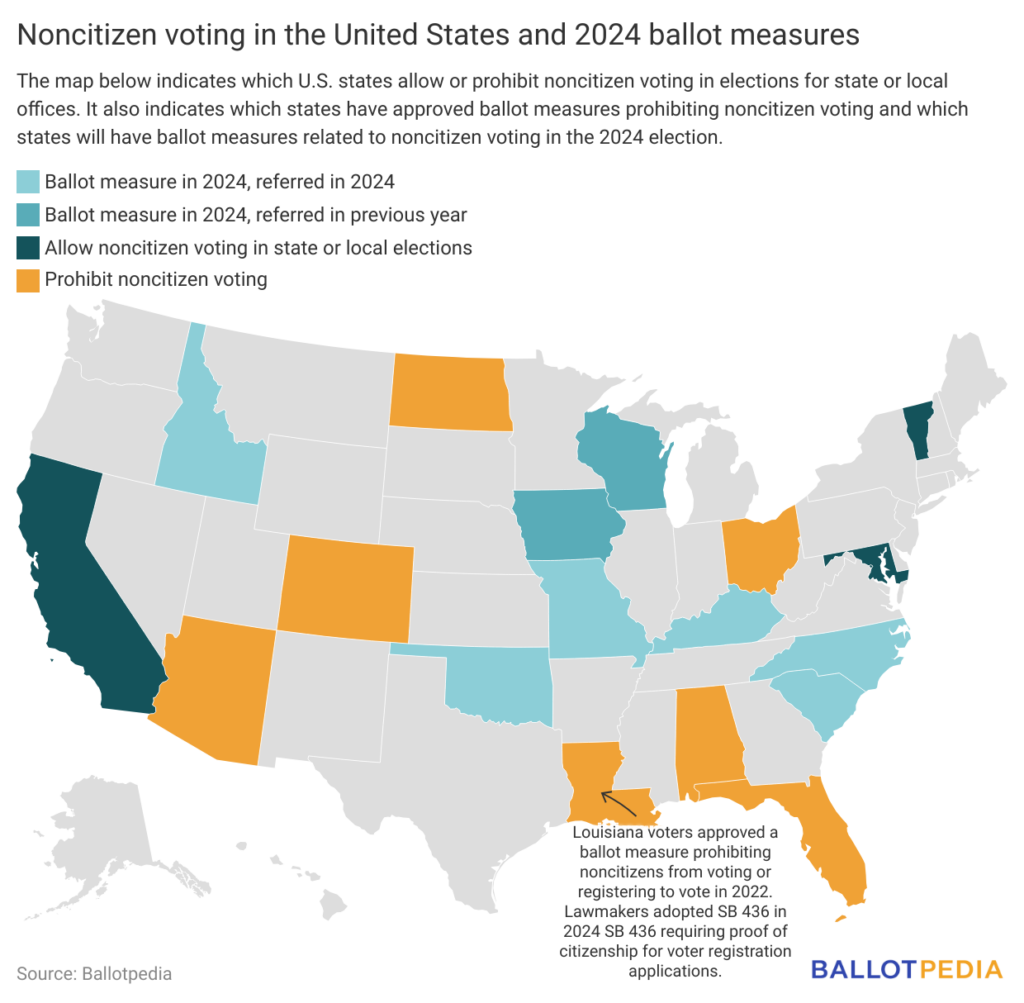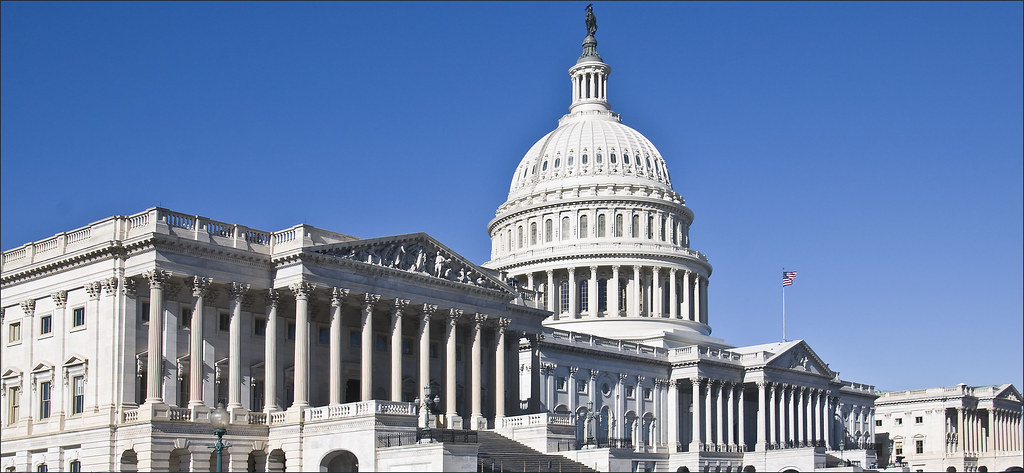On July 10, the U.S. House passed HR 8281, a bill that would require proof of citizenship to register to vote in elections for Federal office. The bill, titled the Safeguard American Voter Eligibility Act, was introduced by Rep. Chip Roy (R-TX) and ultimately gathered 104 cosponsors in the House, all Republicans.
The bill passed by a vote of 221-198, with five Democrats joining all Republicans to advance the legislation to the Senate. The Democrats who voted “Yea” were: Rep. Henry Cuellar (D-TX), Rep. Donald Davis (D-NC), Rep. Jared Golden (D-ME), Rep. Vicente Gonzalez (D-TX), and Rep. Marie Gluesenkamp Perez (D-WA). Five Republicans and ten Democrats were recorded as not voting.
In a press conference before the vote, Speaker of the House Rep. Mike Johnson (R-LA) said, “If just a small percentage, a fraction of a fraction of all those illegals that Joe Biden has brought in here to vote, if they do vote, it wouldn’t just change one race. It might potentially change all of our races.” In April, Johnson promoted the bill in a press conference with former President Donald Trump (R) at Mar-a-Lago.
The bill’s primary sponsor, Rep. Roy, wrote in an op-ed: “Radical progressive Democrats aren’t even trying to hide it anymore – they’re publicly admitting their intention to leverage open borders and the tens of millions of illegal aliens in the U.S. to fundamentally remake America by cementing one-party rule.”
Rep. Joe Morelle (D-NY), the Ranking Member on the House Administration Committee to which the legislation was referred, said: “The false claim that there is a conspiracy to register noncitizens is a pretext for trying to overturn the 2024 election, potentially leading to another tragedy on January 6th, 2025.”
The Biden administration released a statement urging lawmakers to vote against the bill, saying: “The alleged justification for this bill is based on easily disproven falsehoods. Additionally, making a false claim of citizenship or unlawfully voting in an election is punishable by removal from the United States and a permanent bar to admission. States already have effective safeguards in place to verify voters’ eligibility and maintain the accuracy of voter rolls.”
With Democrats in control of the Senate, the bill is unlikely to advance in the upper chamber. Rep. Vicente Gonzalez, one of the five Democrats who voted “Yea” in the House, said: “It’s not going anywhere. It’s just another Republican messaging bill.”
Under federal law, it is illegal for noncitizens to vote in any federal election, including elections for the U.S. House, U.S. Senate, and presidential elections. Research published by the Brennan Center, which describes itself as “an independent, nonpartisan law and policy organization,” found 30 suspected cases of noncitizen voting among a sample of 23.5 million cast ballots.
More recently, an effort by the office of Ohio Secretary of State Frank LaRose (R) to identify noncitizens registered in the state found 137 such cases out of approximately 8 million registered voters. Similar reviews in recent years include noncitizen voting audits in Georgia and North Carolina. A 2022 audit in Georgia that found 1,634 noncitizens had attempted to register to vote over a 25 year period; election officials prevented all of these individuals from registering at the time of application. In North Carolina, a 2016 post-election audit found that 41 noncitizens had cast ballots out of 4.8 million total ballots cast in the election. The audit determined that noncitizen voting did not impact the outcome of any election in the race.
At the state level, voters in eight states, including five states with Republican trifectas and three with divided government, will consider legislatively referred constitutional amendments related to noncitizen voting at the 2024 general election. Since 2018, voters in six states have approved ballot measures related to adding language about citizenship requirements for voting.



